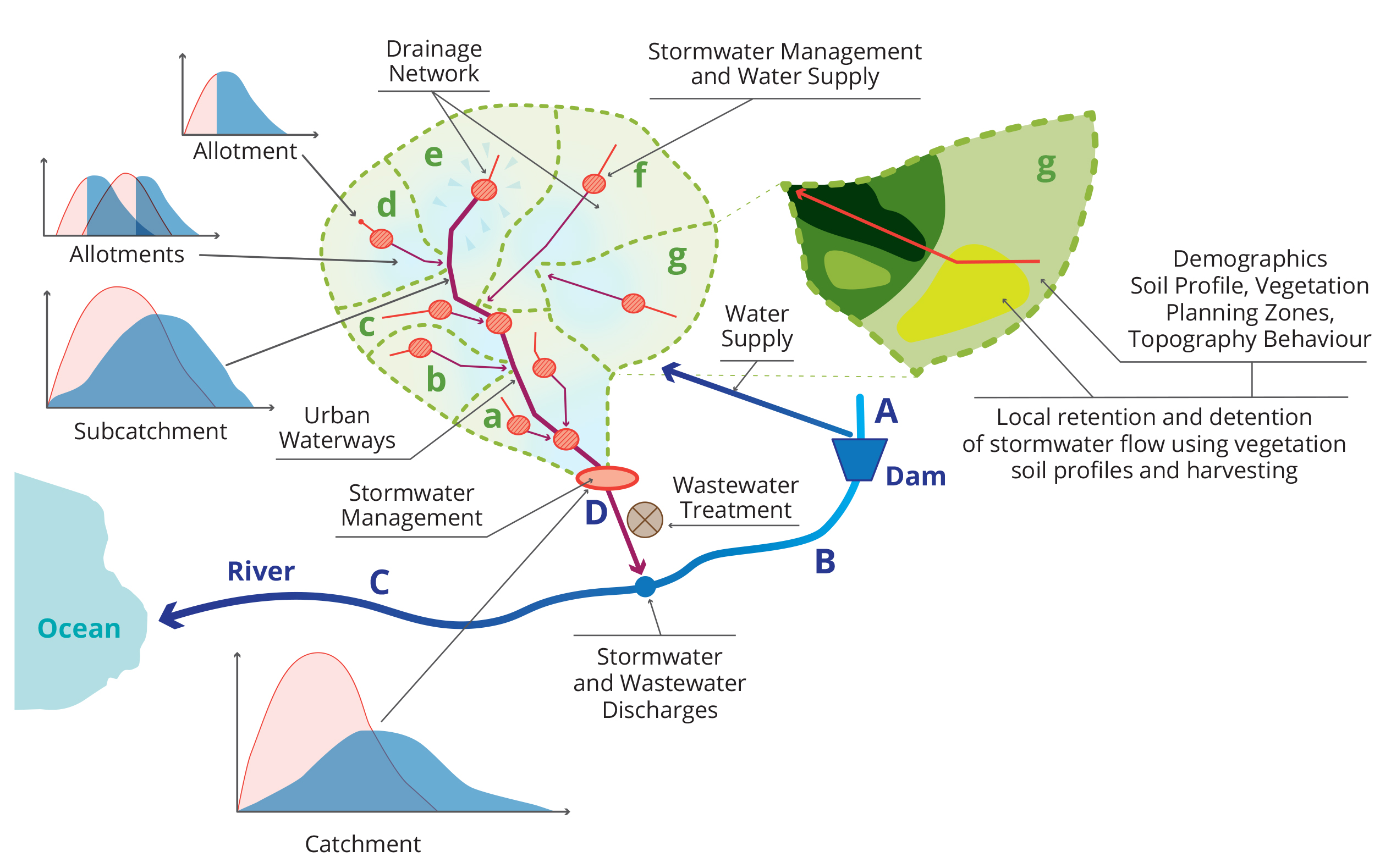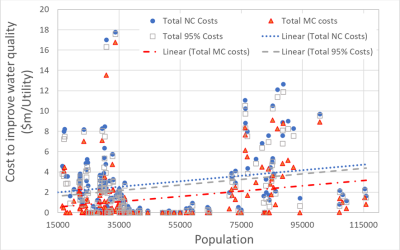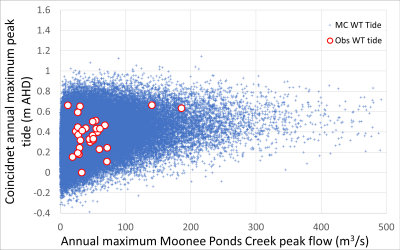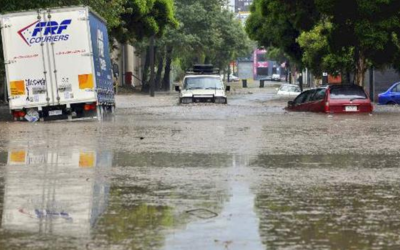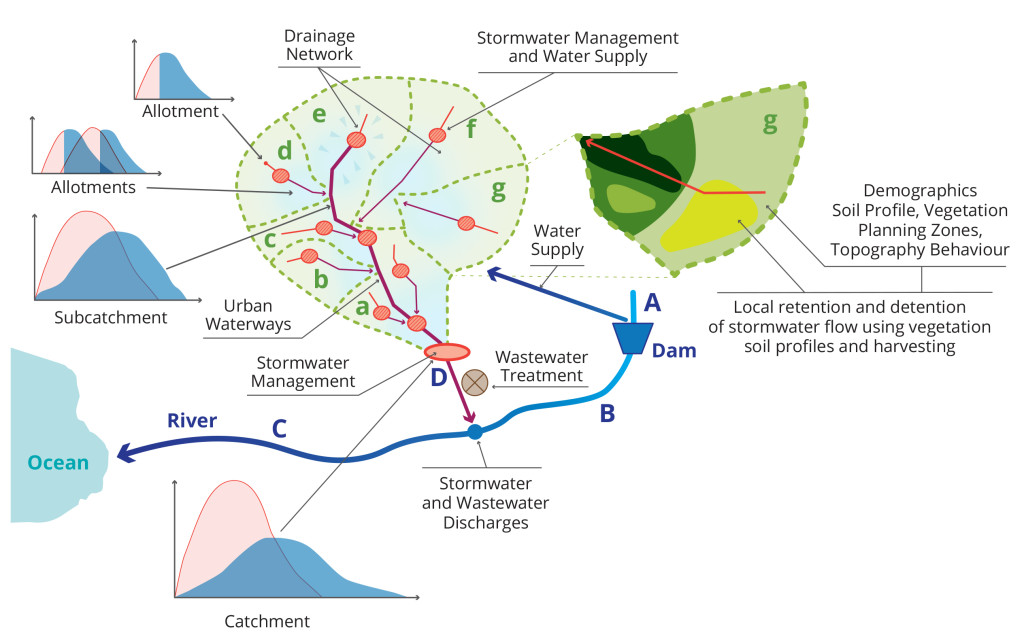
Cumulative and distributed impacts across an integrated water cycle system including local attributes and solutions shown as cumulative changes in stormwater hydrographs (stormwater runoff on vertical axis versus time on horizontal axis)
Status of transforming stormwater drainage to a systems approach to urban water cycle management – moving beyond green pilots
New article in the Australasian Journal of Water Resources. Journal paper – first 50 downloads are free
This investigation was motivated by revision of Australia’s national guide to rainfall runoff and flooding, Australian Rainfall and Runoff (ARR), and systems thinking about the future of urban stormwater management. Reflections on this change process revealed internationally relevant challenges and a need to reframe stormwater drainage as integrated management of the urban water cycle from a design, economic and policy perspective.
Advances in stormwater management are mostly represented by demonstration projects and policies for integrated water management. Many different water management philosophies have emerged that are consistent with evolving dominant interests such as water authorities, government agencies and proprietary research consortiums.
Substantial progress has been made in defining the challenges and necessary solutions but urban flooding and ecological degradation continues to be an escalating problem. Traditional drainage approaches with bottom of catchment management of quantity and quality remains a default implementation solution. Pathway dependence on past methods, competing ideas and ownership, uncertain perceptions of value and a lack of systems perspective may be a barrier that needs to be overcome by the new ARR. Ongoing effort, inquiring minds and continuous improvement is required to meet current and future challenges. A systems approach is needed for water cycle management that includes stormwater management in urban areas. The insights from this paper will also apply to many other cities outside of Australia.

